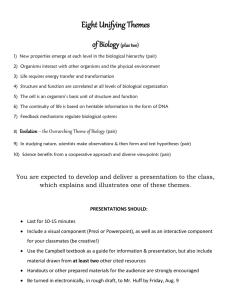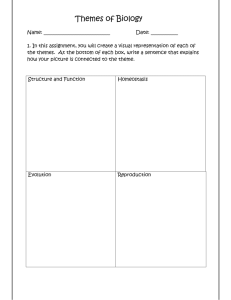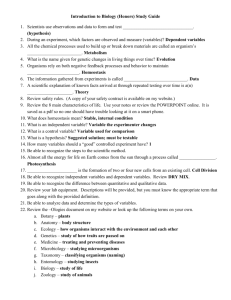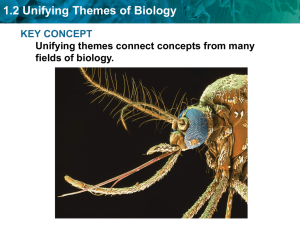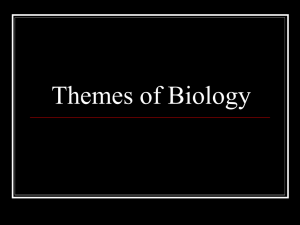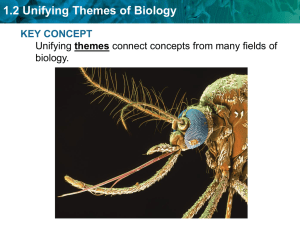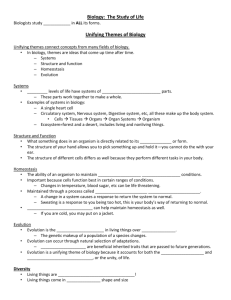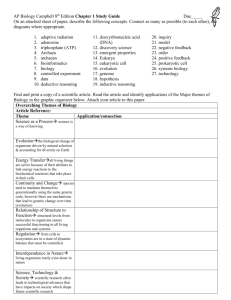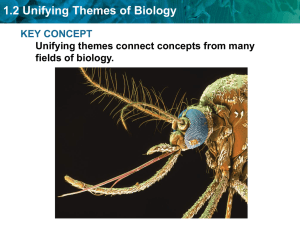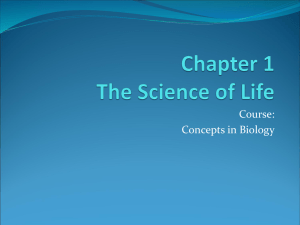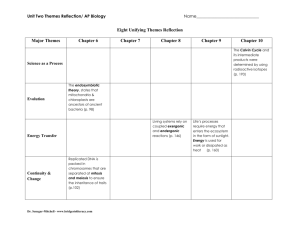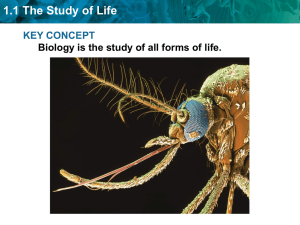1.2 Unifying Themes of Biology
advertisement
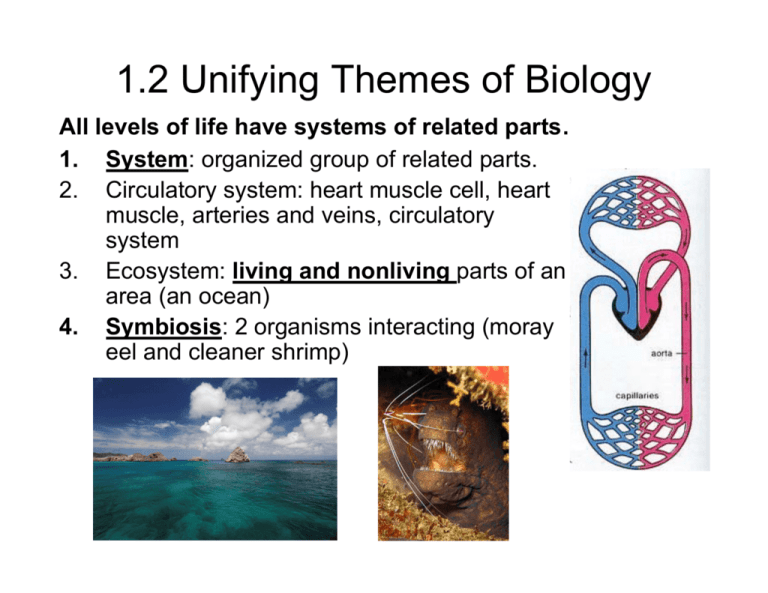
1.2 Unifying Themes of Biology All levels of life have systems of related parts. 1. System: organized group of related parts. 2 Circulatory 2. Ci l t system: t h heartt muscle l cell, ll h heartt muscle, arteries and veins, circulatory system 3. Ecosystem: living and nonliving parts of an area (an ocean) 4. Symbiosis: 2 organisms interacting (moray eel and cleaner shrimp) 1.2 Unifying Themes of Biology Structure and function are related in Biology 1 Structures are shaped a certain way in 1. order to perform a specific function 2. Red blood cells: smaller, disk-shaped which allows ll th them tto fit inside i id smallll vessels l and d deliver oxygen. 1.2 Unifying y g Themes of Biology gy Organisms must maintain homeostasis to survive in diverse environments 1. Temperature and other conditions are always changing. 2. Homeostasis: maintain internal conditions 3. Need to maintain homeostasis because cells function best within a certain range. 4. Polar bears can maintain homeostasis because they have hollow hair that helps the bear retain its body heat. 5. Humans: when you get hot, you sweat and d lose l heat h t 1.2 Unifying Themes of Biology Evolution explains the unity and diversity of life g over time 1. Evolution: change a. Size of horses 2. Adaptation: inherited trait that gives an advantage to organisms a. Thorn bug on plant 3. 4. 5. If the species survives because of the adaptation, d t ti then th it can reproduce d and continue the species. Evolution is a long-term response to the environment. Organisms have many characteristics in common which unites all living things. 1.2 Unifying Themes of Biology 1.2 1 2 Main Idea Questions 1. How is structure related to function in living organisms? a. b b. Snout beetle has specialized prongs and pads on its feet. Why? H t muscle Heart l iis diff differentt ffrom arm muscle. l Wh Why? ? heart arm 2. Why is homeostasis essential for living things? Homeostasis: ability of an organism to maintain internal environment a Allows a species to survive in diverse and changing environments a.
